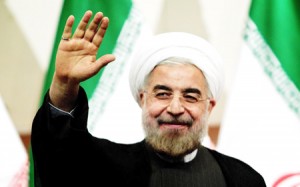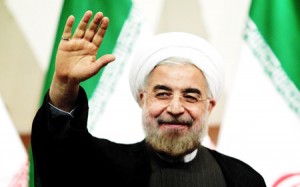Arab News
HASSAN BARARI
 The overwhelming majority of Muslims around the world considers Iran a revisionist state — a country that seeks to expand its influence in the Muslim world regardless of the available means.
The overwhelming majority of Muslims around the world considers Iran a revisionist state — a country that seeks to expand its influence in the Muslim world regardless of the available means.
Unfortunately, Iranian leaders don’t mind supporting terrorism to establish its hegemony in the Middle East. As a matter of fact, this Iranian mindset is responsible for most of the regional problems.
At the 13th summit of the Organization of Islamic Cooperation (OIC) held recently in Istanbul, Iran failed to get away with its policies in the region. Its attempt to focus on unity among Muslims contradicts its actions in Syria, Lebanon, Bahrain, Iran and Yemen. Iranian leader Hassan Rouhani did not have the moral courage to speak the truth. “For everyone it is clear that for Saudi Arabia, Iran is not the problem and for Iran, Saudi Arabia is not the problem,” said Rouhani.
Obviously, he knows better than that. For Saudi Arabia and the rest of the Arabs countries, Iran is the most salient source of threat. Just a few months ago, Riyadh cut its diplomatic relations with Tehran in a protest to Iranians setting fire to the Saudi embassy and consulate in Iran.
Iran-backed militias as well as Iranian forces are fighting the Syrian people for almost five years. And President Rouhani is in denial. It is not as if the rest of the Muslim world is not paying attention to Iran’s destabilizing policies in the Arab world. The OIC harshly criticized Iran as the latter “continued support for terrorism.” The Conference deplored Iran’s interference in the internal affairs of the states of the region and other member states including Bahrain, Yemen, Syria and Somalia, and its continued support for terrorism,” the OIC said in its final communiqué.
The Muslim nations’ condemnation of Iran and the failure of the latter to change the final communiqué show beyond doubt that no amount of diplomacy can change reality.
Iranians can talk nicely as much as they want, but people of our region will only look at their deeds. Seen in this way, anti-Iran feelings in the region have to do with what Iran does. Of course, Iran can change that by changing its policies and stop meddling in the internal affairs of the Arab world.
Iranian leaders mistakenly believe that by issuing harsh statements against Israel it could hoodwink the Arab world. The Arabs will no longer fall prey to this tactic and will not turn a blind eye to Iranian actions in the region.
Besides, many in the Arab world consider Iran a bigger threat than Israel for two reasons. First, unlike Israel, Iran is a Muslim country and can infiltrate into the Muslim societies under the banner of religion easily. Israel cannot do that and it is not difficult to rally the public opinion against Israel. Second, while Israel does not have a militia fighting for its interests, Iranian expansionist interests are being served by Hezbollah and by its puppet militias in the Arab countries.
In brief, neither Saudi Arabia nor other Muslim nations seek to provoke Iran. To them, Iran’s polices are the problem. Iran can easily bring about a rapprochement with Saudi Arabia and the rest of the Arab countries by doing two things: By withdrawing its militias from hotspots in the region and by not interfering in the internal affairs of its neighbors. Iran’s failure to improve its image by relying on diplomacy should send a clear message to Iranian leaders that the days of deception are over.



